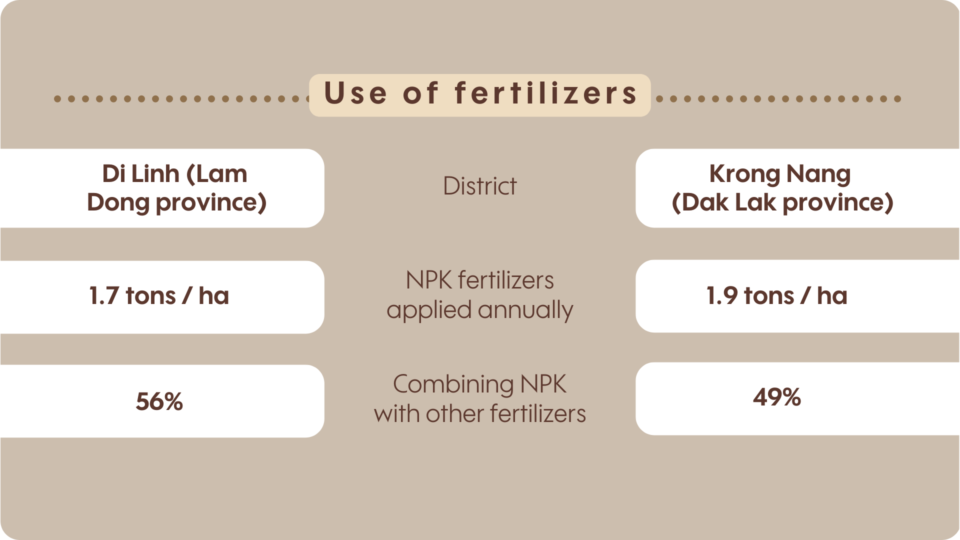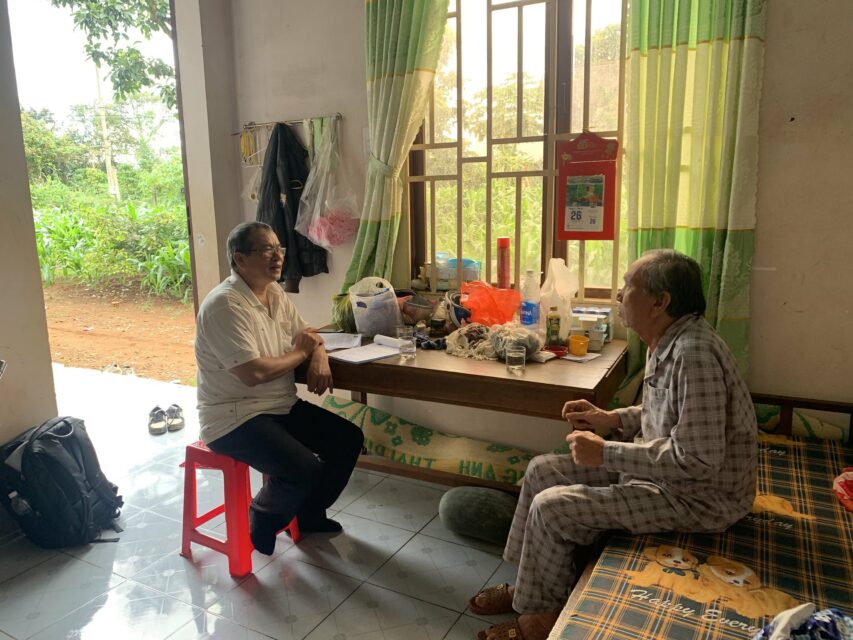Five things we have learnt from the
Delta Framework
G

G
Over the past few years, GCP’s focus on measurement and data has been by working with strategic partners in the sector and beyond. The most recent milestone in this path is the publication of the results from the piloting of the Coffee Data Standard and the Delta Framework, two tools designed to further support a consolidated and consistent way to measure and report the uptake of sustainability practices at farm level.
The Coffee Data Standard and the Delta Framework were piloted in Vietnam from 2019-2021. A total of 7,224 households from the Di Linh district (Lam Dong province) and 6,318 households from the Krong Nang district (Dak Lak province) participated in the Coffee Data Standard’s data collection, while in-depth interviews with 200 households in Di Linh district were conducted to test the Delta Framework.

The collected data has shown insights into the current dynamics of coffee production and provided important recommendations to improve the sustainable farming practices that have been shared with local stakeholders in Vietnam. This information also contributed to improving the indicators and the collection tools, and to understanding how these efforts could be scaled.
GCP’s work on the Delta Framework provided 100 farmers participating in the pilot with personalized profiles and tailored recommendations on how to improve their fertilizing farming practices. A follow-up with 14% of these farmers in 2022 suggests that 65% followed the recommendations received.
After an intensive analysis of the data collection, these are 5 of the key findings from the pilot in Vietnam.
In both districts, the amount of chemical fertilizers (NPK) applied to the coffee crop as well as the way of combining it with organic or bio-organic fertilizers are the main factor affecting the coffee yield. For the households in the Di Linh district, where monocropping prevails, farm performance highly depends on the efficiency of the fertilizer used.
The findings suggests that best practices are to combine NPK with organic and/or biofertilizers in a harvest crop, to enhance the use of organic and bio-organic fertilizers to improve coffee yield, fertilizer efficiency, and soil quality, and to boost potassium content for high-yield in the case of mono-crop farms.

The pilot showed that in the Krong Nang district the households with the highest coffee yield and highest gross margin per hectare were the ones incorporating intercropping among their farming practices. Together with replantation processes, these practices help to ensure food security.
The findings showed that to achieve the best farming practice, intercropped trees like durian, pepper, avocado, and macadamia in Vietnam can be complementary trees planted in the coffee fields rather than the competing ones.
The development of case studies will help to understand the combinations of intercropping trees that better strengthen sustainable farming practices.
In Vietnam, high-yield Robusta varieties like TRS1; TR9; TR11 achieve better outcomes. In this sense, public policies should prioritize households that have low yield and poor farm performance in their replantation programs.
The results of the pilot also highlighted the application of intercropping together with the replantation process, as the best way to ensure food security at the household level in Vietnam.

In both districts, more than 90% of households have attended training courses on sustainable farming practices. After going through the training, the producers on these farms proved to understand how to implement the knowledge obtained in the areas of watering, applying fertilizers, Integrated Pest Management (IPM), crop husbandry, harvesting, processing, and storing.
Joining training in National Sustainability Curriculum (NSC) is useful for improving farming practices. Additionally, participating in certification schemes not only led to enhanced sustainable practices, but was also seen connected to higher yields.
One of the main reflections shared by the members of the household participating in the pilot is that the information flow for these data collection tools should be aligned to the annual crop activities. In the case of Vietnam, the farmers reported that the best calendar timeline for surveys is around March or after the Lunar New Year. The participants agreed that by adapting to these cycles and repeating surveys across various years the data collected could increase its value.

